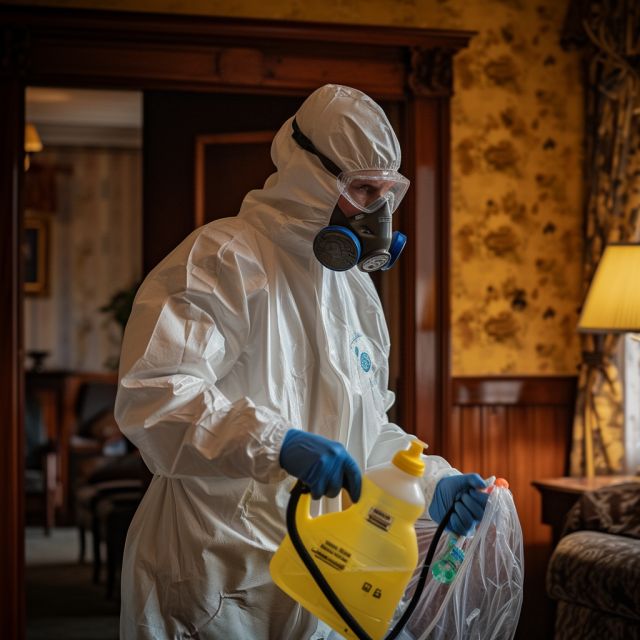
Exploring the Intersection of Pest Control and Public Health
Pest control is often associated with the removal of nuisance pests from homes and businesses. However, its significance extends far beyond mere inconvenience, as it plays a crucial role in safeguarding public health. In this blog post, we’ll delve into the intersection of pest control and public health, shedding light on the importance of pest management practices in promoting a safe and healthy environment for communities. At the forefront of this endeavor is PestBan, a leading provider of innovative pest control solutions committed to protecting public health through effective pest management strategies.

Preventing Disease Transmission
One of the primary concerns associated with pests is their ability to transmit diseases to humans and animals. Pests such as rodents, mosquitoes, and cockroaches can carry a wide range of pathogens, including bacteria, viruses, and parasites, posing significant health risks to humans. For example, rodents are known to spread diseases such as leptospirosis, hantavirus, and salmonellosis, while mosquitoes are vectors for deadly diseases like malaria, dengue fever, and Zika virus. By implementing proactive pest control measures, PestBan helps prevent the spread of disease-causing pathogens, thereby protecting public health and minimizing the risk of outbreaks within communities.
Mitigating Allergies and Respiratory Issues

In addition to transmitting diseases, pests can also exacerbate allergies and respiratory issues, particularly in individuals with sensitivities to pest allergens. Common indoor pests such as dust mites, cockroaches, and rodents produce allergens that can trigger allergic reactions and asthma attacks in susceptible individuals. PestBan employs integrated pest management (IPM) strategies to eliminate pests and reduce allergen exposure, thereby improving indoor air quality and mitigating health problems associated with respiratory conditions. By creating healthier living environments, PestBan contributes to the well-being and quality of life of individuals and families.
Controlling Vector-Borne Diseases
Vector-borne diseases, which are transmitted to humans through the bites of infected arthropods such as mosquitoes, ticks, and fleas, pose significant public health threats worldwide. These diseases, which include malaria, Lyme disease, and West Nile virus, can have serious health consequences and may lead to severe illness or even death if left untreated. PestBan employs targeted pest control measures to manage vector populations and reduce the risk of vector-borne disease transmission in communities. Through strategic pest management interventions, PestBan helps protect public health and enhance community resilience against vector-borne diseases.
Promoting Food Safety and Hygiene

Pests pose a significant threat to food safety and hygiene, as they can contaminate food products and food preparation areas with their droppings, saliva, and hair. In addition to causing foodborne illnesses, such as salmonellosis and E. coli infections, pest infestations can also lead to costly product recalls and damage to brand reputation. PestBan works closely with food establishments, including restaurants, grocery stores, and food processing facilities, to implement comprehensive pest management protocols that comply with food safety regulations and standards. By safeguarding the integrity of the food supply chain, PestBan plays a critical role in ensuring the safety and well-being of consumers.
Conclusion: Safeguarding Public Health Through Effective Pest Control

In conclusion, the intersection of pest control and public health underscores the importance of proactive pest management practices in promoting a safe and healthy environment for communities. PestBan’s commitment to protecting public health through innovative pest control solutions exemplifies the vital role that pest management professionals play in safeguarding public health and well-being. By addressing pest-related health risks, preventing disease transmission, mitigating allergies and respiratory issues, controlling vector-borne diseases, and promoting food safety and hygiene, PestBan contributes to the overall health and resilience of communities. As we continue to confront emerging health challenges and environmental threats, the importance of effective pest control in safeguarding public health cannot be overstated.
You might want to view our other articles like A Guide to Happy and Healthy Feet and Hair Extensions Care: Maintenance Tips and Tricks.




